Born captive: A survey of the lion breeding, keeping and hunting industries in South Africa (Open Access)
Commercial captive breeding and trade in body parts of threatened wild carnivores is an issue of significant concern to conservation scientists and policy-makers. Following a 2016 decision by Parties to the Convention on International Trade in Endangered Species of Wild Fauna and Flora, South Africa must establish an annual export quota for lion skeletons from captive sources, such that threats to wild lions are mitigated. As input to the quota-setting process, South Africa’s Scientific Authority initiated interdisciplinary collaborative research on the captive lion industry and its potential links to wild lion conservation. A National Captive Lion Survey was conducted as one of the inputs to this research; the survey was launched in August 2017 and completed in May 2018. The structured semi-quantitative questionnaire elicited 117 usable responses, representing a substantial proportion of the industry. The survey results clearly illustrate the impact of a USA suspension on trophy imports from captive-bred South African lions, which affected 82% of respondents and economically destabilised the industry. Respondents are adapting in various ways, with many euthanizing lions and becoming increasingly reliant on income from skeleton export sales. With rising consumer demand for lion body parts, notably skulls, the export quota presents a further challenge to the industry, regulators and conservationists alike, with 52% of respondents indicating they would adapt by seeking ‘alternative markets’ for lion bones if the export quota allocation restricted their business. Recognizing that trade policy toward large carnivores represents a ‘wicked problem’, we anticipate that these results will inform future deliberations, which must nonetheless also be informed by challenging inclusive engagements with all relevant stakeholders.
Williams VL, ‘t Sas-Rolfes MJ (2019) Born captive: A survey of the lion breeding, keeping and hunting industries in South Africa. PLoS ONE 14(5): e0217409. https://doi.org/10.1371/journal.pone.0217409
Published: May 2019 | Categories: Research Articles
Join & Contact us
11a Mansfield Rd
Oxford OX1 3SZ



